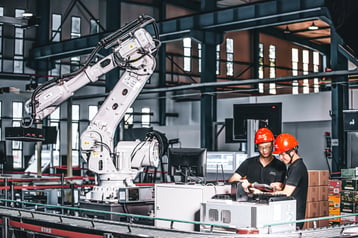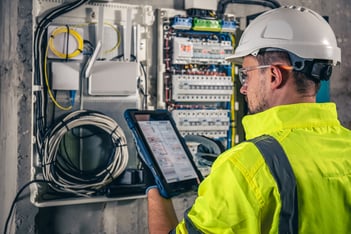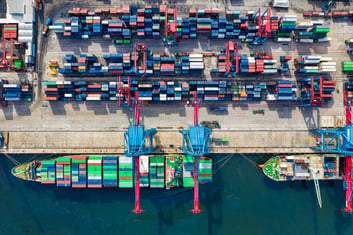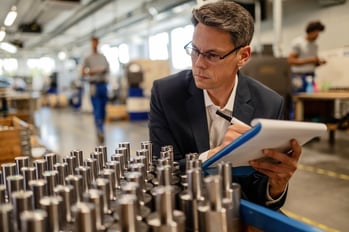Integrating AI into manufacturing operations has unlocked new levels of efficiency, productivity, safety, innovation and quality while decreasing costs and downtime, making it an essential component of Industry 4.0. As AI continues to advance, it can also drive competition between businesses, leaving those who don’t use it in the dust.
Let’s look at how AI has transformed the manufacturing sector into a modern, high-tech industry.
Enhanced Automation
One of the most prominent aspects of AI in manufacturing is enhanced automation. AI-powered robots and machines execute tasks with precision and consistency that can surpass human capabilities, and they can be programmed to perform a wide range of functions, eliminating the need for specific employee skills.
With AI-driven automation, manufacturers can reduce the risks of errors, minimize downtime and enable continuous 24/7 production, resulting in higher throughput and efficiency. Since automation is adaptable and reconfigurable, it allows manufacturers to respond quickly to changes in demand or product variations.
Robotic process automation (RPA) uses software and machine learning to reduce labor and operational costs, which can lead to substantial savings over time, especially in repetitive and labor-intensive processes. This, in turn, can increase employee experience and performance and focus their attention on less mundane tasks. In fact, 43% of manufacturers already use RPA.
Predictive Maintenance
Unplanned equipment downtime can be a significant challenge in manufacturing, as it can cost money and lead to reputational damages. Maintaining equipment is essential, and AI-powered predictive maintenance uses data from systems, sensors and historical performance to predict when machinery will fail or accidents will occur.
By identifying issues before they become critical, manufacturers can schedule maintenance and repairs at optimal times, minimizing production disruption. Predictive maintenance can also extend equipment lifespan, leading to significant cost savings.
Supply Chain and Warehouse Optimization
AI can optimize supply chain management, helping manufacturers streamline operations, reduce inventory costs and improve responsiveness to market fluctuations. AI supply chain solutions use historical data and analytics to make better decisions regarding inventory management, demand forecasting and logistics. It can also anticipate the price of raw materials, as manufacturers must constantly adjust to unpredictable costs.
Another benefit to AI regarding the supply chain is that it can identify reliable suppliers and vendors and help negotiate favorable terms, as well as keep tabs on what was purchased from what vendor. By finding more efficient shipping routes, AI can help reduce risks and increase efficiency.
Warehouse management with AI helps manufacturers monitor stockrooms and improve logistics while lowering manual labor, operational and warehouse management costs. With AI, manufacturers can process orders faster and have more accurate scheduling.
Quality Control
Ensuring product quality is another critical aspect of manufacturing. Some products, like cars, can have deadly errors if made incorrectly. AI has revolutionized the quality control process by enabling real-time inspection and defect detection with machine learning algorithms and computer vision. These tools analyze images, videos, live streams, sensor data and other inputs to identify deviations and flaws in quality standards that a human might miss. They can then send an alert so humans can fix the error, or sometimes they can fix it themselves.
With AI-driven quality controls, manufacturers can maintain consistently high quantity and production rates while eliminating human-related errors and reducing recalls. Early defect detection prevents the production of subpar or faulty products, which reduces material and resource waste. AI can also provide insights into what’s causing the defects, allowing manufacturers to improve and optimize processes.
Generative Design
Generative design is when machine learning algorithms mimic the design process and quickly provide hundreds, if not thousands, of product design options from scratch. These designs can either improve the existing product or help create a whole new one. All that AI needs is details like materials, size and weight.
Once the design option is made, manufacturers can then use digital twin technology to test it. Digital twin technology virtually simulates products, machines and even factories in an industrial metaverse. From here, manufacturers can test products and systems and improve upon them until they find the perfect one before implementing them in the real world, which reduces testing time and costs, as well as waste and scrap. This is especially beneficial for customized products.
Thriveon and AI
At Thriveon, we understand how important AI is to the manufacturing industry. Our fractional CIOs are building policies and strategies on how to properly implement AI so our clients can leap ahead of the competition.
For more information, schedule a meeting with us today.

